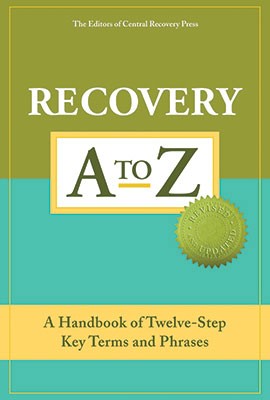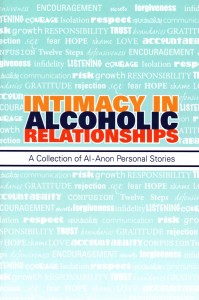
Alcoholism and alcohol abuse both refer to problems with alcohol consumption, but they’re not the same. What is the difference between these, and how do you know which one you’re dealing with? Find out more about these different types of drinking problems.
 Recovery A to Z Book | AA 12 Step Book | My 12 Step Store
Recovery A to Z Book | AA 12 Step Book | My 12 Step Store
Written in a reader-friendly, conversational tone from an insider’s view by two anonymous authors with long-term recovery, Recovery A to Z is the perfect reference book for anyone in a twelve-step program or who knows someone in a twelve-step program.
Alcoholism
Alcoholism refers to a chronic condition involving dependence on alcohol. People who have this condition are both psychologically and physically dependent on alcohol. In fact, they often are unable to handle day-to-day tasks and activities unless they drink alcohol. Certain signs can indicate alcoholism, such as tolerance, withdrawal and compulsion. Tolerance means people need to drink more and more alcohol to have the same effects. Withdrawal occurs when people have physical and psychological symptoms, such as tremors and nausea, after going without alcohol. Compulsion refers to strong cravings for alcohol and an inability to stop drinking. Keep in mind that alcoholism can lead to higher risks of potentially fatal conditions, such as cirrhosis.
 Spiritual Awakenings -Journeys of the Spirit | Spiritual AA Book
Spiritual Awakenings -Journeys of the Spirit | Spiritual AA Book
Spiritual Awakenings -Journeys of the Spirit Read about the journeys of the spirit AAs have taken on the way from alcoholism to recovery: Their return to the abandoned faith of their youth.
Alcohol Abuse
Alcohol abuse refers to drinking too much alcohol at one time, such as binge drinking, or having too much alcohol on a regular or more frequent basis. People who struggle with this continue abusing alcohol even when it has a negative impact on their life, such as harming interpersonal relationships or causing problems at their job. Alcohol abuse generally includes having 15 drinks or more for men or eight drinks or more for women. Binge drinking refers to having five drinks or more in 2 hours or less for men and having four drinks or more in 2 hours or less for women.
Those who have alcohol abuse don’t necessarily have alcoholism. However, abusing alcohol on a long-term basis can lead to a higher risk of having alcoholism at some point. If this happens, the risk of ending up with serious health problems, such as heart disease or liver disease, increases. People who have either condition require treatment in order to enjoy a full recovery, reduce the risk of severe health problems and adopt a sober lifestyle.
 Intimacy in Alcoholic Relationships
Intimacy in Alcoholic Relationships
Members share their challenges with all aspects of intimacy–physical, emotional and spiritual–in all relationships affected by the family illness of alcoholism.
If you need to find motivational or inspiring books or other items during recovery, visit My 12 Step Store today. We carry a wide selection of recovery items, including clothes, books, medallions, jewelry and DVDs.
